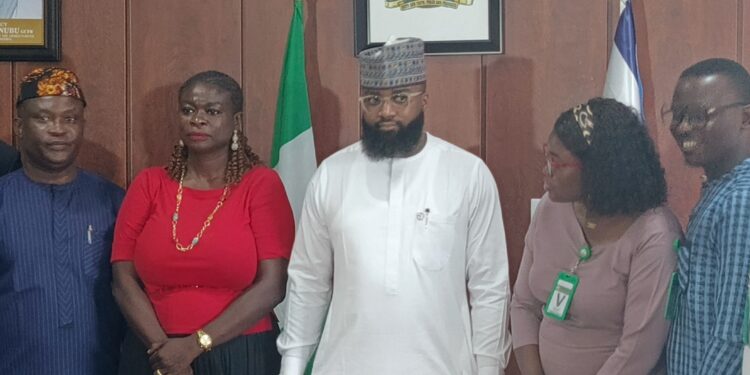The Executive Vice Chairman and Chief Executive Officer of the Nigeria National Agency for Science and Engineering Infrastructure (NASENI), Khalil Suleiman Halilu, has outlined his vision to transform the agency into a 21st-century hub for collaboration, creation, and commercialization.
Speaking to journalists in Abuja as he marked one year in office, Halilu emphasized the need for partnerships to develop high-quality products and technologies, and to build commercially viable pipelines for these innovations.
Halilu noted that his first year as Executive Vice Chairman has focused on technology transfer, innovation, institutional rebranding, capacity building, and the commercialization of NASENI’s research and development prototypes.
” My leadership is also prioritized partnerships to promote homegrown industrialization.
“My one-year journey with NASENI exemplifies unwavering commitment to Nigeria’s innovation and industrial growth. We have proven our manufacturing capabilities, invested in staff training, and laid the foundation for sustainable industrial practices,” Halilu stated.
He highlighted the agency’s efforts to conduct research that supports Nigeria’s industrial growth and enhances the skills of NASENI staff through training and development programs. These initiatives align with President Tinubu’s industrialization reform agenda.
“We have partnered with both local and international institutions, leveraging their resources and expertise to drive innovation and industrial development,” Halilu said.
He added that NASENI has created policies to foster a conducive environment for innovation and industrialization.
Halilu also pointed out that NASENI is committed to reducing Nigeria’s reliance on imported technologies and promoting domestic production. The agency has supported sustainable development projects and sponsored research aimed at addressing environmental challenges, especially in the renewable energy and agricultural sectors.
Focusing on the commercialization of NASENI’s research outputs, Halilu stressed the importance of bridging the gap between research and practical innovation.
“Next year, I aim to further enhance NASENI’s impact on Nigeria’s technological and industrial landscape, ensuring that all viable products are commercialized rather than left as prototypes,” he said.
One of my key goals is to transform NASENI into a catalyst for industrialization and economic diversification in Africa.
“We are building NASENI into a hub for technological innovation, contributing to Nigeria’s global competitiveness,” he noted.
As the agency continues to develop cutting-edge technologies, Halilu plans to strengthen partnerships and establish NASENI showrooms across major cities, allowing the public to experience the agency’s innovations firsthand. Products such as solar irrigation systems, electric tricycles, solar street lamps, smartphones, and lithium batteries are part of NASENI’s efforts to promote renewable energy and technological advancement.
Halilu reaffirmed his commitment to adding value to Nigeria’s natural resource.
We believes that through the development and export of value-added products, NASENI can help shift Nigeria from being a consuming economy to a producing one, driving industrial growth and economic development.











